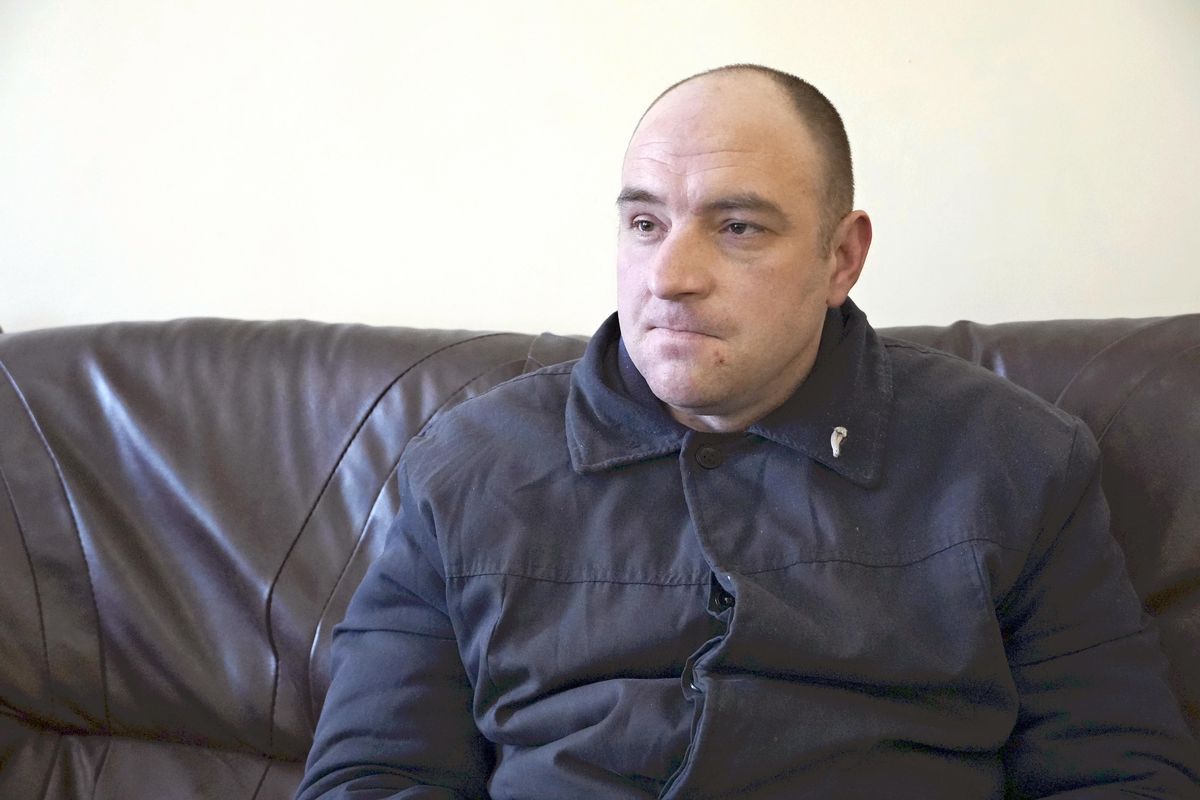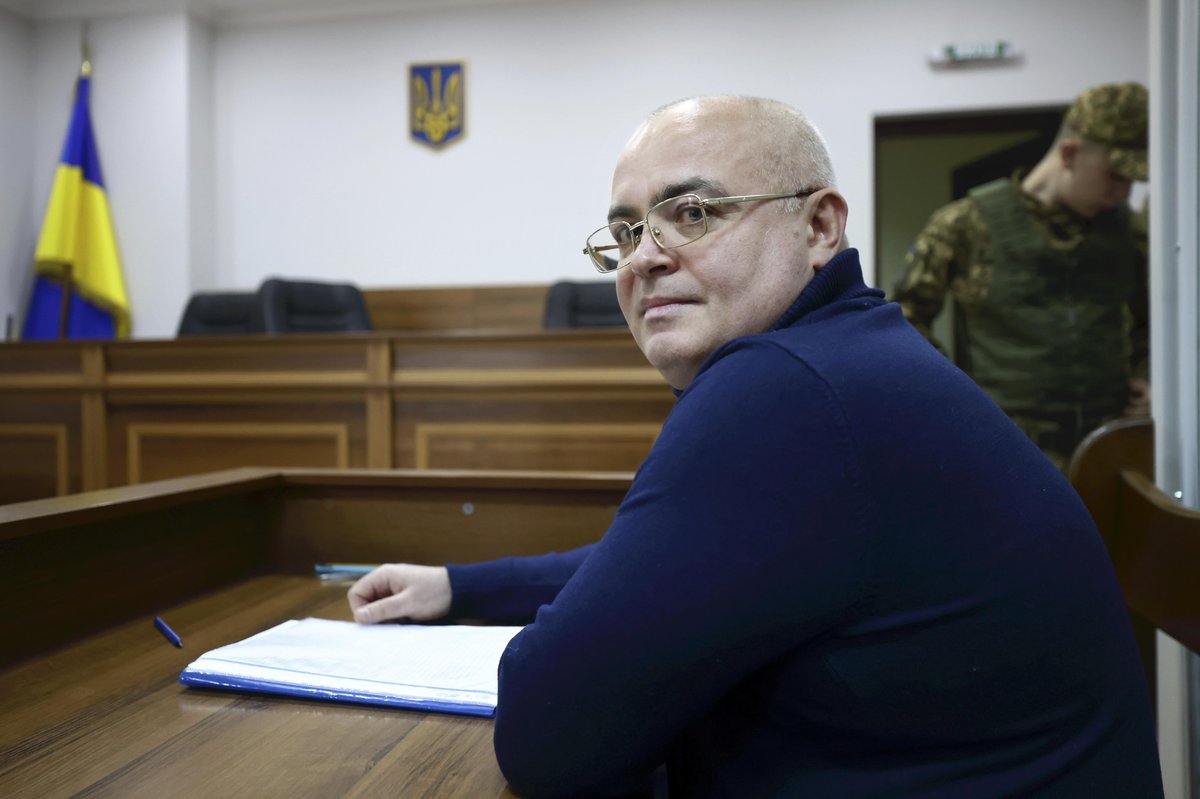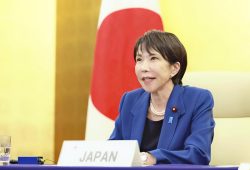3 Years Of Aggression Against Ukraine: Ukrainians Forced to Join Russian Army Labelled Traitors, Tried for War Crimes

Aleksandr Ashev, a prisoner of war sentenced to life in prison for treason, outside Lviv, on Jan. 30
2:00 JST, March 1, 2025
KYIV — Residents from Russian-occupied eastern Ukraine are among the soldiers in the Russian army, which is engaged in aggression against Ukraine. Those forced to join the fighting are regarded as traitors in Ukraine and have lost their homes, regretting that they took part.
Aleksandr Ashev, 39, an inmate at a prisoner of war camp on the outskirts of Lviv in western Ukraine, said that he had no choice but to fight in the Russian army. He agreed to be interviewed and photographed by The Yomiuri Shimbun.
A native of Luhansk in eastern Ukraine, he was detained by the Ukrainian military in December 2022 and released in a prisoner exchange. He then fought again as a Russian soldier and was captured for a second time in December 2023 and sentenced to life in prison for treason by a Ukrainian court.
In Luhansk, Ashev had been a coal miner. Soon after the Russian aggression began in February 2022, he was put on a Russian military conscription office bus, which had been waiting for the miners as they went to work. He was judged to be in good health and forced to join the army. The Geneva Conventions prohibits the conscription of residents in occupied territories.
After about a month of training, he was assigned to the defense unit in Starobilsk in the Luhansk region. Six months later, he was sent to Berestove in the Donetsk region, which was the scene of a fierce battle with Ukrainian forces. Three months later, he was taken as a prisoner of war.
In April 2023, he was sent back to Russia in an exchange of prisoners of war. When he returned to his home in Luhansk, he found his wife had safely given birth to their son.
Ashev felt that he had returned to a happy life, but soon after, the conscription office informed him that he would be mobilized again. Despite going into hiding for one month, he returned to the Russian army in September that year to take care of his wife and child. At the front, he earned 170,000 rubles (about ¥280,000) per month, seven times more than in the coal mines.
He was again deployed to Berestove. Under heavy fire from the Ukrainian army, Ashev hid behind trees. The moment it quieted down, he looked up and was found by Ukrainian soldiers. He was taken prisoner again.
Ashev’s home is a 10-minute drive from the Russian border, meaning Russian influence is strong. His father is Belarusian, and his mother is Russian, but he is not anti-Ukrainian. He said that he never thought there would be a conflict between the two countries. He continued that he does not want to fight against either; he just wants to go home to be with his family.
Legal support for ‘the enemy’

Artem Halkin, a lawyer who handles war crimes and other cases, in Kyiv, on Feb. 10
Ukrainian lawyers representing defendants accused of war crimes and treason against Ukraine in court are also conflicted.
Artem Halkin, a 50-year-old lawyer from Kyiv, said that it is a job that someone has to do. As a court-appointed defense lawyer, he has handled many cases, including about 10 of war crimes involving Russians and about 50 of treason involving Ukrainians. Most are tried in absentia as the defendants are in Russia or Russian-occupied territories.
At trial, he has always argued that, in the absence of the defendant, we cannot know the motive, which is detrimental to the defendant. The defendants may have been threatened or had their families taken hostage.
Halkin is an internally displaced person. He fled to Kyiv from Marinka in the Donetsk region after the conflict there in 2014. His hometown came under Russian military rule, and his parents remain there.
When Russian missile attacks destroyed a children’s hospital and other facilities in Kyiv in July last year, Halkin had been defending a Russian who had committed war crimes at a nearby courthouse. He felt ashamed for what he was doing at the time. Still, he thought that providing legal assistance even to enemies and traitors is an indicator of a nation’s level of civilization. He said that is important for Ukraine as a democratic country.
Top Articles in World
-

Israeli Ambassador to Japan Speaks about Japan’s Role in the Reconstruction of Gaza
-

Videos Plagiarized, Reposted with False Subtitles Claiming ‘Ryukyu Belongs to China’; Anti-China False Information Also Posted in Japan
-

Chinese Embassy in Japan Reiterates Call for Chinese People to Refrain from Traveling to Japan; Call Comes in Wake of ¥400 Mil. Robbery
-

Russia: Visa Required for Visiting Graves in Northern Territories, Lifting of Sanctions Also Necessary
-

China, India Tapping into Promising African Market; Beijing Announces Tariff Cuts, Both Countries Aim to Expand Exports
JN ACCESS RANKING
-

Producer Behind Pop Group XG Arrested for Cocaine Possession
-

Japan PM Takaichi’s Cabinet Resigns en Masse
-

Japan Institute to Use Domestic Commercial Optical Lattice Clock to Set Japan Standard Time
-

Man Infected with Measles Reportedly Dined at Restaurant in Tokyo Station
-

Israeli Ambassador to Japan Speaks about Japan’s Role in the Reconstruction of Gaza
























